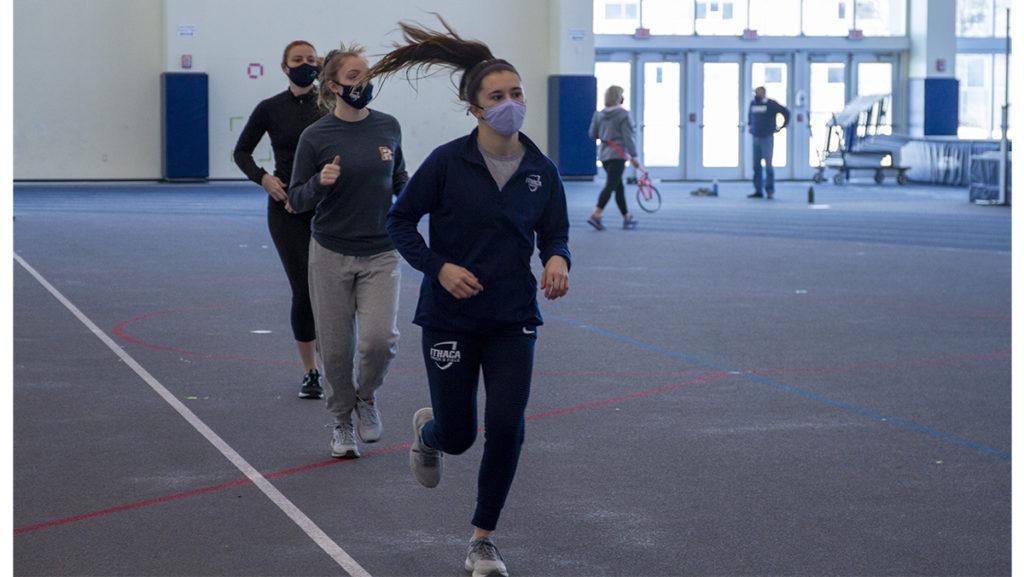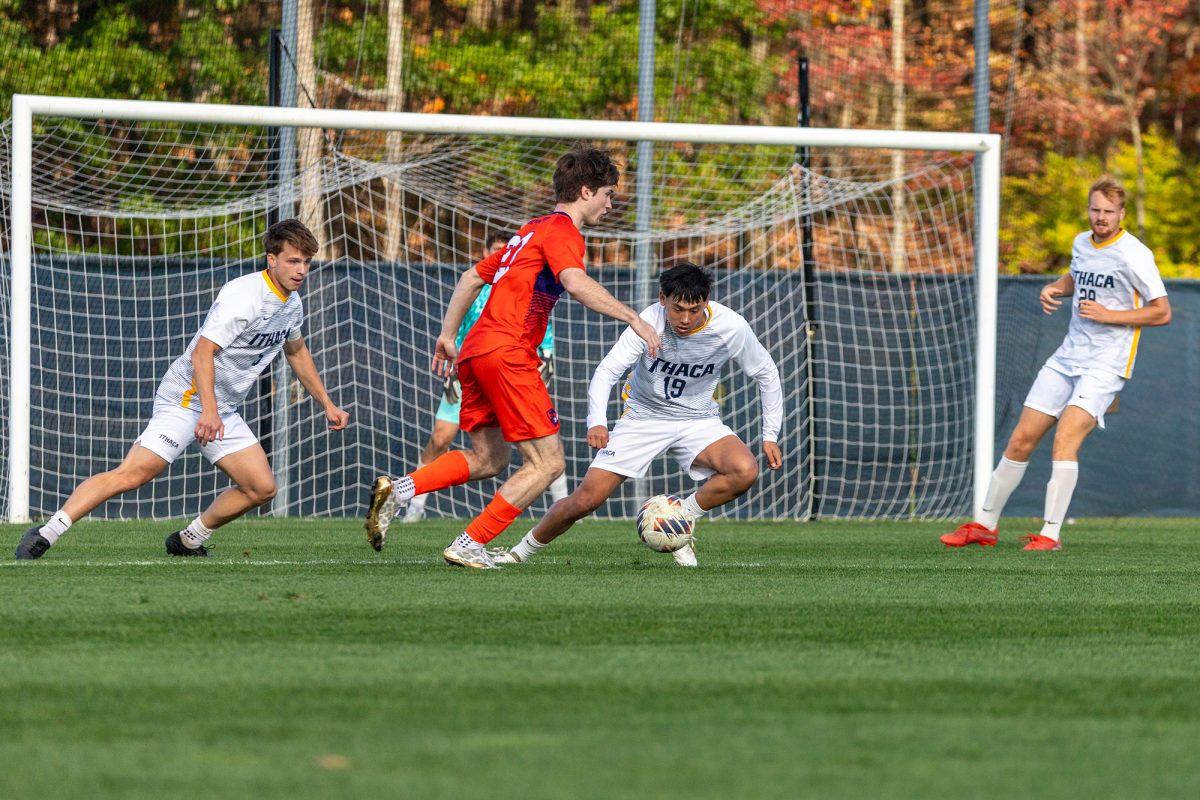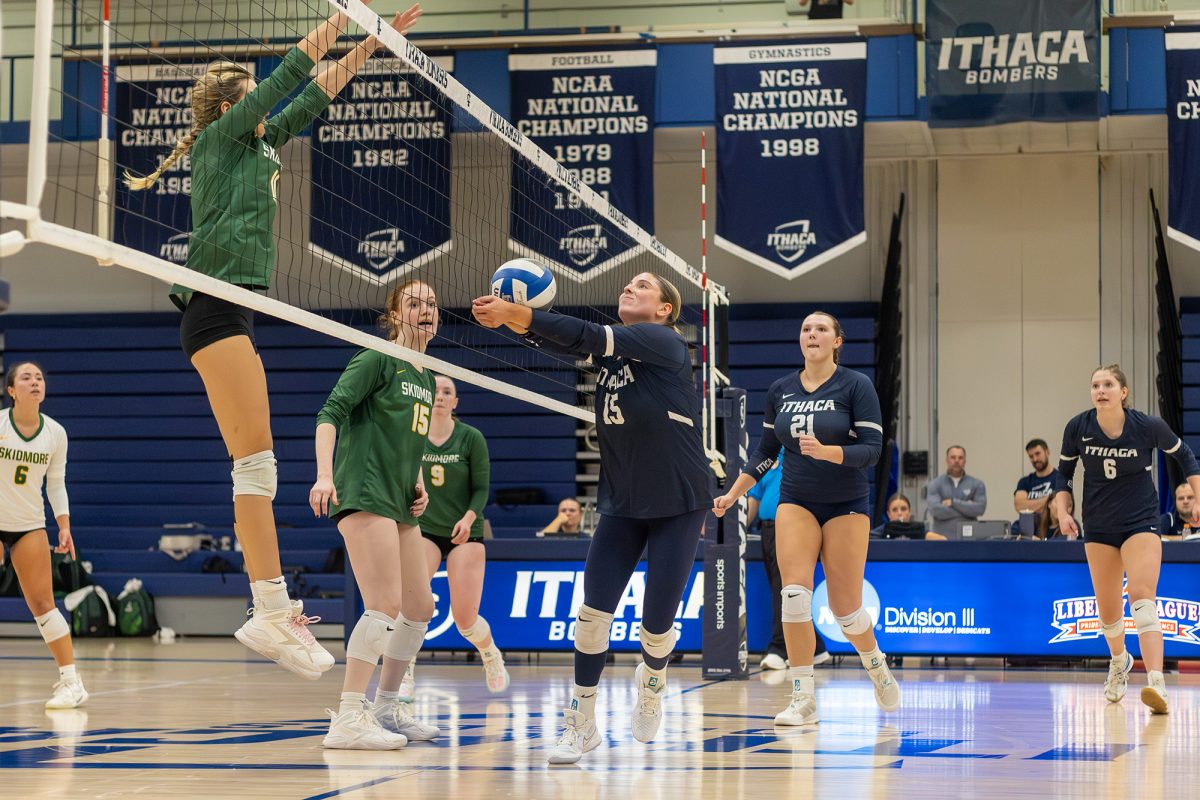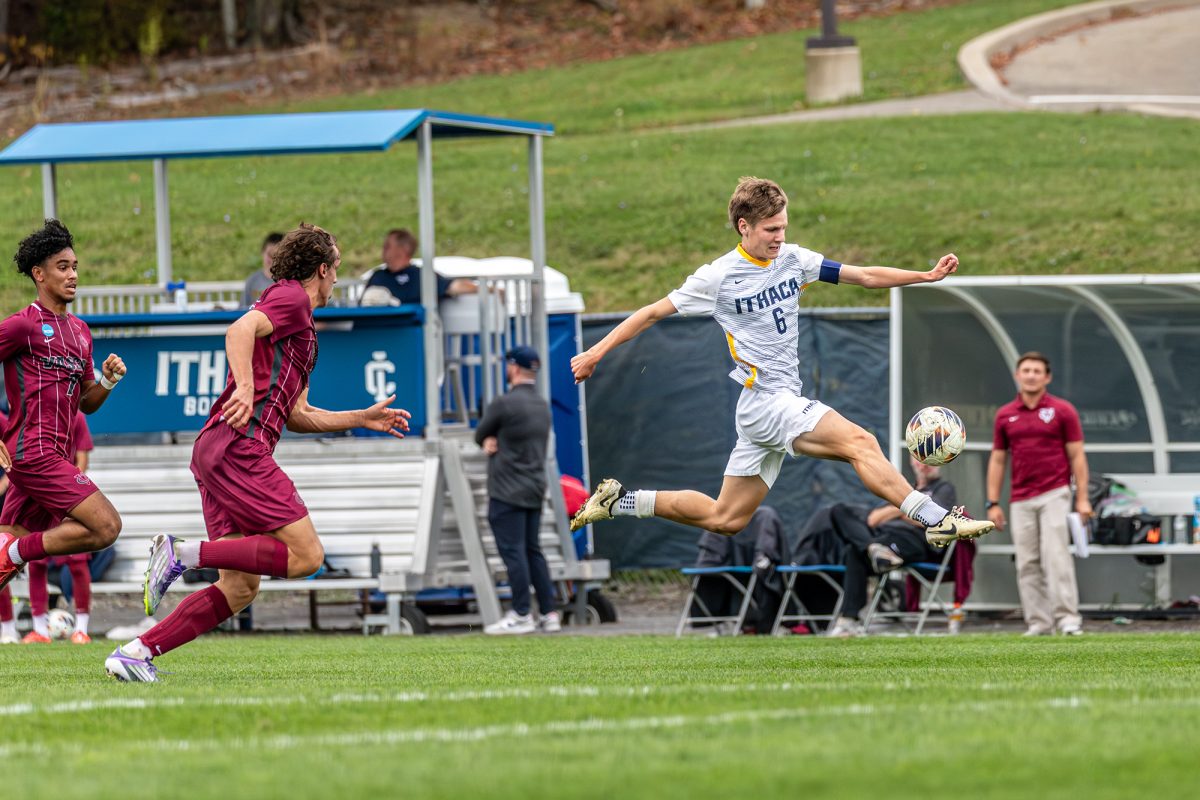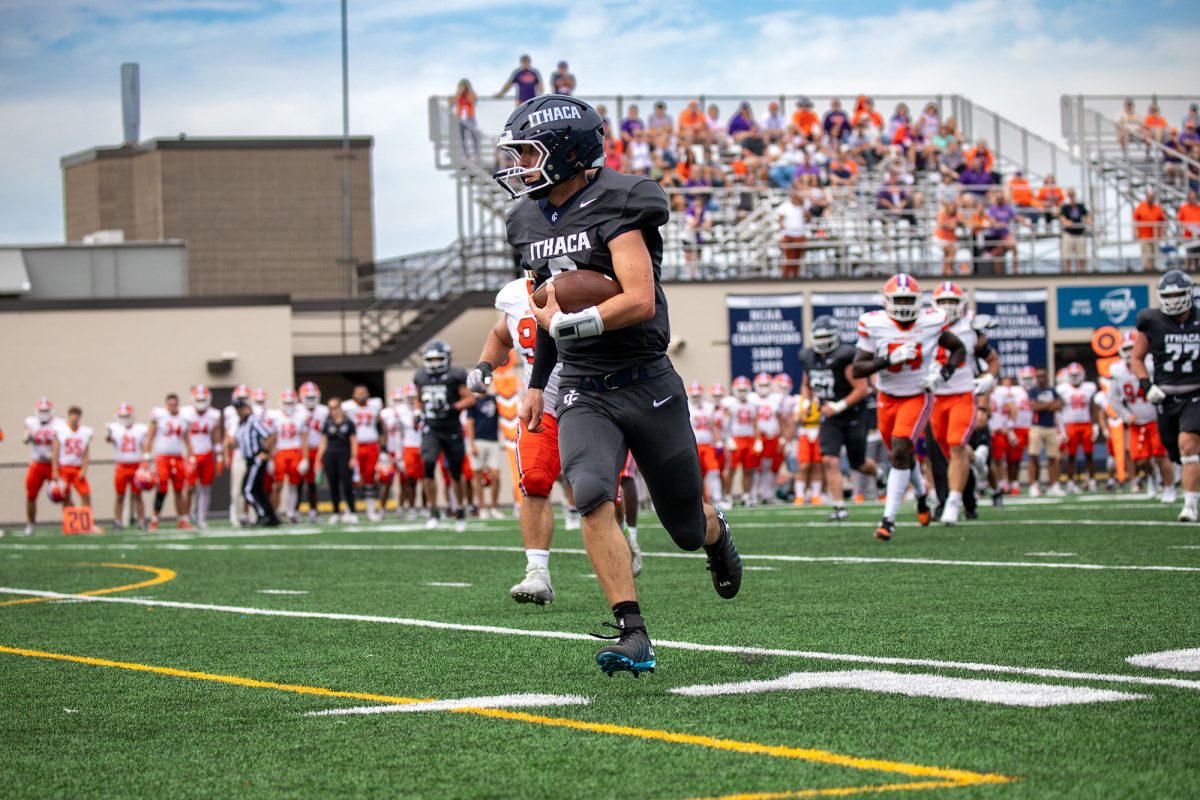When senior football player Andrew Vito first heard that Ithaca College and the Liberty League canceled Fall 2020 sports competition, he said he knew right away that he would take a gap year in order to compete one last time. While he said he was not shocked by the cancelation, he was upset knowing that he would not get to play with a majority of his fellow seniors again.
In October 2020, the NCAA Presidents Council approved a blanket waiver for Division III that stated athletes may compete during the 2020–21 academic year without losing participation or academic eligibility. This means that all Division III competitors may compete for a fifth — or even sixth — season. Athletes may delay their graduation by taking a leave of absence, enrolling in fewer credits for the semester, or adding another major or minor. They may also continue to compete while studying in a graduate program.
Erienne Roberts, associate director of athletics and senior woman administrator at the college, said fall and winter sport athletes currently have two semesters of eligibility and one additional semester of competition, while spring athletes have three semesters of eligibility and two seasons of competition. Athletes have to consider factors outside of sport, like finances, academic plans and individual health. However, Roberts said the NCAA has been flexible for each member institution when it comes to student eligibility.
“The NCAA has actually been really good on administrative and presidential waivers for a leave, specifically related to eligibility,” Roberts said. “I think the other thing they really try to do is allow institutions autonomy on what competition looks like for them. I guess even really working with what we’re given as far as a legislative booklet, they’ve just been really good on providing additional interpretation, some flexibility, leniency in different places, and that’s been incredibly helpful for our purposes.”
Roberts said the most difficult part is understanding the NCAA’s eligibility guidelines for students who are still planning to graduate on time but want to continue to play as they pursue an extended or second degree or graduate program, as the guidelines for graduate students vary among Divisions I, II and III. She said most of her discussions with athletes focus on answering questions about whether to graduate on time and pursue a graduate program or take a leave of absence to delay graduation. She also said this is a unique experience for Division III athletes because often college is their last chance to compete.
“When we look at Division III athletes, this is it,” Roberts said. “Very rarely do they go on and play at a professional level, so these are their competitive days where after this. … Just even trying to get people to understand, ‘Why would a student want to delay? Just graduate.’ This is what they’ve been doing their whole lives.”
Roberts said she has seen a variety of plans from athletes who are looking to utilize their extra eligibility. Some students are changing their minors to majors and graduating a year later with a second bachelor’s degree, while others are looking at graduate programs at Division I schools with the potential of using their eligibility with a new team.
Junior track and field athlete Meghan Matheny has decided to stay at the college for a fifth year while pursuing another minor. She currently majors in business administration with concentrations in sport management and sport marketing. She also currently minors in photography and plans to add a graphic design minor. Matheny said she planned to graduate in four years and considered going somewhere else for graduate school prior to the pandemic and receiving two extra years of eligibility. However, she said she most likely will not compete for a sixth year if she goes to another university for a graduate program.
“I’ll still end up having another year after track that I could use as a sixth year or something,” Matheny said. “I’ve only ever had [Matt Scheffler, assistant track and field coach for pole vaulting] as my coach, even in high school. I think it would be a little weird being like, ‘I pole vaulted for 10 years now, and for one singular season of three months, I’m going to have someone else be my coach,’ so I’m probably going to finish out five years and call it after that.”
Vito, who is a business administration major, said he decided to take a leave of absence in the fall semester and worked for a medical supply company. He re-enrolled in Spring 2021 and will graduate this December. Vito said he is just one of two football players in his graduating class using the extra eligibility and feels that finances played a huge role in this.
“To come back just to play one semester of football is not conducive for a lot of people, especially myself,” Vito said. “I wasn’t going to spend ‘X’ amount of dollars just to come play football, so that’s why I mapped it out the way I did. For some guys, scholarships didn’t carry over, or they thought they maybe would get into a grad program but weren’t given the scholarship they previously had. Money gets tight, and you know it’s Division III football at the end of the day, despite how much we love to play.”
Despite having the extra season of eligibility, some athletes have chosen not to take advantage of it for reasons other than academics and finances. After months of consideration — and being almost certain she was going to play a fifth year — senior field hockey player Katie Dick, who is in the college’s five-year occupational therapy program, said she ultimately chose not to because of an ongoing shin injury she faced during her junior year.
“My injury definitely played a part in my decision because my dad had so many injuries that have required surgery now that he’s older,” Dick said. “I can’t be waddling around hurting for the rest of my life. Like, I’m still only 21. I still have a lot of life left in my legs.”
While Dick said it was difficult to make the decision to end her field hockey career, she felt that she was ending on a high note after a former strength and conditioning coach spoke kindly of her at the team’s senior banquet, which was held in December over Zoom.
“I feel like some people are ready to be done, but I wasn’t ready to be until after hearing what Dakota [Brovero] said,” Dick said. “I was like, ‘Alright, if that’s how people are going to remember me, I’m happy with that.’ I don’t need to push it out any further than it needs to be. I had a good three and a half years.”
Senior writer Emily Adams contributed reporting to this story.


